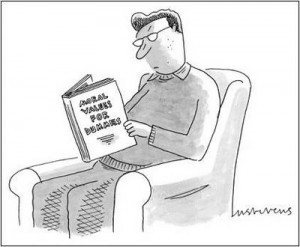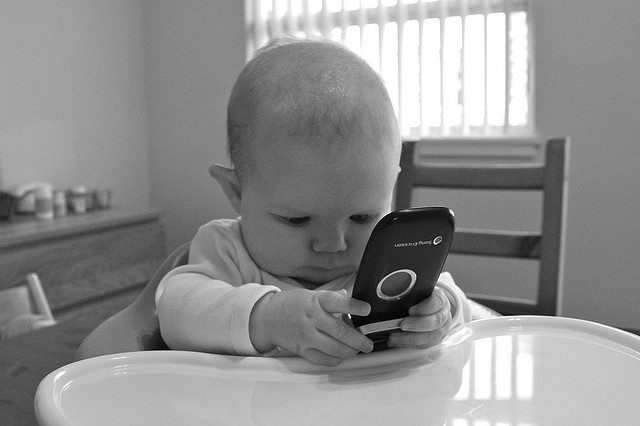 “I wonder how far Moses would have gone if he’d taken a poll in Egypt? . . . What would Jesus Christ have preached if he’d taken a poll in Israel? . . . It isn’t polls or public opinion of the moment that counts. It’s right and wrong.” — President Harry S. Truman (Truman, David McCullough, 914-915)
“I wonder how far Moses would have gone if he’d taken a poll in Egypt? . . . What would Jesus Christ have preached if he’d taken a poll in Israel? . . . It isn’t polls or public opinion of the moment that counts. It’s right and wrong.” — President Harry S. Truman (Truman, David McCullough, 914-915)
Category: Miscellaneous (Page 7 of 10)
It’s that time when many are making resolutions for the New Year. I’m not going to advocate for them; nor will I campaign against them. I’m simply observing. Lots of people talk about them. I’m not so sure how many make them. But I have a general idea how many actually keep them.
Frankly, all the talk of New Year’s Resolutions has become so common and the outcome so predictable that, at least for me, they seem rather like a confession waiting to happen: “No, I didn’t keep my resolutions … again.” That will probably happen somewhere between January 2 and the 15th of the month. It sounds too much like a recipe for discouragement down the road and not enough like real change in the present.
But then I looked into the history and development of the word itself. It seems to have arisen from either an Old French word back in the late 14th century (which meant “a breaking into parts”) or a Latin term (which described “the process of reducing things into simpler forms”).
Hey, that’s not a bad idea! Confusion is of the devil. God is all about “the simplicity … of devotion to Christ” (2 Corinthians 11:3).
The Latin term arose from a term meaning “to loosen.” A lot of our problems look like knots pulled tight to the point of hopelessness. What if we were able to pick away at them consistently until things started to loosen up and the individual parts that make up our challenges became more obvious? Breaking down our challenges into smaller, more easily tackled, parts seems the path of wisdom.
Later, in the 1500’s the word started being used to describe the solving of mathematical problems.
Now I’m starting to not like this word so much again!
But, then, there was that story not long ago about the German, teenage high school student who solved a 300 year old math problem that had first been proposed by Sir Isaac Newton. Think about that! For thirty decades the brightest minds on the planet played with this conundrum and couldn’t make heads or tails of it. But then, suddenly one high school student saw it!
Could God help me see my challenges in a different light?
Yes, if you ask Him. “If any of you lacks wisdom, let him ask God, who gives generously to all without reproach, and it will be given him” (James 1:5).
So rather than making a bunch of resolutions here’s what I’d suggest. How about just identifying one important area where you desire to see change. Then …
- Specifically, directly and prayerfully submit the whole thing to God.
- Ask God for wisdom to see the parts that contribute to and make the problem more powerful than it has to be. Call upon Him for the discernment to see which parts of the problem are most easily conquered. Cry out for the sight to identify the portions that are most strategically important in becoming successful in the whole matter.
- Invite a godly friend into the equation. Explain what you’re dealing with. Invite them to pray with you over this. Ask for and listen to their observations about your situation. Maybe they’ll see things in a light you don’t as yet.
- Then, submit everything to God again, this time the whole problem along with your new understanding of the parts that make it up.
- Then ask God for the grace to begin to tackle just a one or two of those parts you’ve come to see in new light. Deal with the simpler parts first. Do something that gives you a taste of the victory you desire over the whole issue.
- Trust God for the grace to take the individual steps along the way so that you can rejoice with Him at each stage and eventually in the final victory.
It wasn’t until the 1780’s that the idea of making New Year’s Resolutions showed up. And for over 200 years generation after generation has been trying, wishing, longing for change. But too often it proves illusive.
I’m after real change and I think you are too. None of us wants to set ourselves up for failure … again. Who needs that! The human will, unaided by the grace of God, is incapable of improvement of a kind or to a degree that is sufficient to fully please either God or ourselves. But the life surrendered fully to God through Jesus Christ, indwelt by the Holy Spirit and resolute on obedience has potential we’ve not yet imagined. Let’s go after more of that in 2015.
The sermon’s subtitle was “Technology and Degeneracy Arrived on Parallel Tracks.” The preacher was A.W. Tozer. It was spoken at a time when cutting edge technology was embraced by having a television in your home. Despite the passage of fifty-plus years since its delivery, his words seem truer now than they did when he first spoke them:
“I don’t know whether this will prove anything, but I throw it out for what it may say to a sharp mind ready to hear: I wonder if it isn’t very strange and significant that two developments came in parallel order. The toymakers’ dream came to pass–the invention of all the gadgets and ‘things’ that now mark what we call modern civilization. But, parallel with that, at the same time and among the same people, like two rails of the same railroad track running side by side, there came the most frightful and frightening, incredibly cruel and wicked state of affairs that have ever been known since the days of Noah.” (The Tozer Pulpit, 3:126)
“… calling subverts the deadly modern idolatry of choice. Choice in modern life is central, powerful, unquestioned, and enshrined in how we think and all we do–so much so that it cannot be undermined merely by an appeal to another choice. Choice for modern people is a right that overwhelms both responsibility and rationality. … Arguments against choice need to recognize the special, godlike power of choice. But ultimately only one thing can conquer choice–being chosen. Thus, for followers of Christ, calling neutralizes the fundamental poison of choice in modern life. ‘I have chosen you,’ Jesus said, ‘you have not chosen me.’ We are not our own; we have been bought with a price. We have no rights, only responsibilities. Following Christ is not our initiative, merely our response, in obedience. Nothing works better to debunk the pretensions of choice than a conviction of calling. Once we have been called, we literally ‘have no choice.'” (Oz Guinness, The Call, p.167, emphasis mine)



